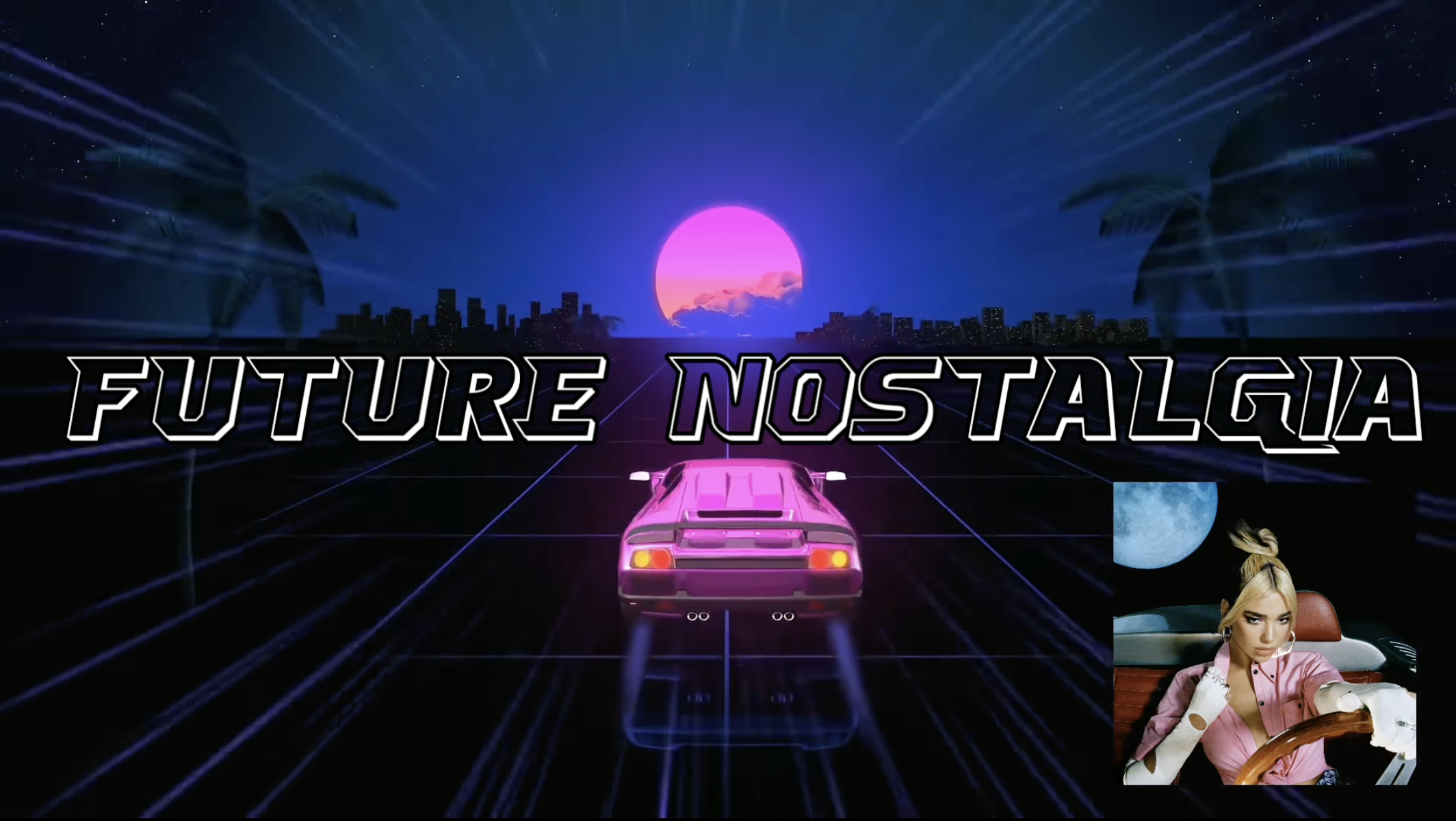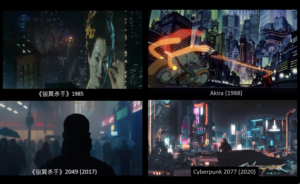Hauntology—-future nostalgia

When talking about Mark Fisher’s ideas of lost futures, it is important to first be familiar with hauntology, a term coined by Derrida. Derrida use the word hauntology, to refer to the way in which we never encounter things as fully present as fully there. In all of our experiences, the present is always mixed up with the past and the future, that would just present is always mixed up with that which is absent, we can only make sense of any present moment by comparing it with the past and anticipating the future.
The way the term hauntology has been popularized by Mark Fisher in cultural theory, is a lot more specific though. It refers to a kind of cultural hauntology. It refers to a kind of cultural ontology, the way we are haunted by our past and our media, art and entertainment, often referring to the way in which we paradoxically try to relive our anticipations of a future by going back to the past.According to Mark Fisher, because of the dominance of neoliberalism. We have reached a cultural impasse. People are no longer trying to anticipate the future to conceive of new world.Neoliberalism demands of us short term solutions, quick results, and the repetition of old already established cultural forms.Likewise, capitalism is less risky to sell people what they are familiar with, so filmmakers would rather make another sequel than create and shoot new scenes with new aesthetics. There’s an important distinction to be made here. It is true that technological progress hasn’t stopped, and is probably accelerating. But here’s the crucial difference. While in the past, the emergence of new technologies enable the emergence of new cultural forms. Today, new technologies are subordinated to the repetition and refurbishment of old already established cultural forms.Perhaps there is another reason that while the culture is not developing that fast, the technology is developing fast. People’s resistance to the inevitable changes brought about by technological development is a natural response.People can take protection from nostalgia to ease fears of a future world.
In the 80s, the theorist Frederick Jameson critique of the postmodern cultural condition, predicting that it would be increasingly characterized by revivalism and pastiche. Today, this is more true than it was then. And currently seen most clearly in 80s revivalism. It often seems that we are no longer capable of creating something that seems futuristic of imagining or anticipating something otherworldly. On the hauntological aspect of this ,is that ironically to try to relive and recapture the disappearing hopes for the future. We return to the past, trying to rediscover how the future was imagined back then. Mark Fisher compares this among other things to the condition of Leonard and Christopher Nolan’s movie memento. Leonard suffers from anterograde amnesia. He has permanent memories up to a certain point in his life, but isn’t capable of making new ones. His only way of orienting himself with regards to changes in the world is through pictures, notes and tattoos. Our cultural condition is like a collective anterograde amnesia, the inability to create new cultural forms, and thereby being doomed to orient ourselves to the same past again and again. Notice that even contemporary futuristic movies are mostly characterized by reviving the past whether in repeating plots and themes already explored in blockbusters of past decades, or more explicitly adopting 80s aesthetics, referencing 80s culture, and creating soundtracks that imitate 80s analog synthesizers.
Through analog synth music and neon color schemes popularized in the 80s. There seems to be an increasing amount of music videos that tried to hauntingly relive the old, being shot on VHS cameras or edited to look grainy. It seems like we have become more excited about reliving the past than imagining new futures.We are more interested in the aesthetics we are able to imitate and revive rather than the aesthetics we can create.
It is no accident that in the past decade, we have seen the emergence of new genres like vapor wave and hypnogogic pop, which are inherently characterized by a feeling of returning to the past. Vapor wave is created by sampling 80s and 90s pop songs, movie soundtracks and commercials. And slowing them down, looping them, splicing them in different ways and adding reverb. As strange as this genre might have seemed when it first came into prominence, it perfectly reflects our cultural condition as seen by Mark Fisher, our cultural development has slowed down, perhaps even started looping indefinitely, repeatedly letting the past return. This condition constitutes a grand and looming atmosphere that we can’t get out of. In the case of vapor wave, new technologies, such as accessible audio workstation software and the internet that allows the music to spread like never before. But the authors subordinated to the looping and repetition the sounds of the past.
There’s clearly something appealing about the aesthetics that are being revived. But the important question is, why do we find them so appealing? Why now? The point of Fisher’s analysis is not just to criticize culture characterized by lost futures, but to ask what these trends are a symptom of and what they say about our current condition. Is this trend of nostalgia as accidents? Or we are as Fisher believed, part of a culture that because of the condition it has found itself in can only find appeal in pre-established cultural modes and repetition in rehashes in caging ourselves in the safety of the familiar, the correlate of a future that will not arrive as a past that won’t disappear.
I’m not sure I share Fisher’s pessimism about the current state of the culture. In fact in the 80s there were many works about the future that didn’t catch on but became trendy later on, like cyberpunk. Maybe we’re experiencing the same thing now.There may be some exciting ideas about the future that are budding at the moment that have yet to catch on.Have we been kidnapped by neoliberalism and capitalism, so that we have essentially lost the ability to create things beyond imagination?Or are there many novel ideas about the future that have not yet been mainstreamed and will take to the stage in the near future?Perhaps only the future can tell us the answer.
“Weird Studies” is a scholarly field that doesn’t and can’t exist.
The Weird is that which resists any settled explanation or frame of reference. It is the bulging file labelled “other/misc.” in our mental filing cabinet, full of supernatural entities, magical synchronicities, and occult rites. But it also appears when a work of art breaks in on our habits of perception and ordinary things become uncanny.
The Weird is easiest to define as whatever lies on the further side of a line between what we can easily accept from our world and what we cannot. And it defines an attitude towards whatever lies on that side of the line: a willingness to remain suspended between explanations and abide in strangeness.
reference:
(2016) YouTube. Available at: https://youtu.be/oTN6cGmH2yM (Accessed: October 29, 2022).
Fisher, M. (2012) “What is hauntology?,” Film Quarterly, 66(1), pp. 16–24. Available at: https://doi.org/10.1525/fq.2012.66.1.16.





A few comments on what you have posted for Sprint 1:
I enjoyed this Nuanxin! Mark Fisher’s version of hauntology is a good place to start this post – a well established branch of Weird that you can use to discuss the broader issues within the Problem Scenario. You present a good analysis here on what Fisher argues, and you update this with references to recent music and film. This works well as a stand-alone post. Perhaps what you need to consider if the relationship between hauntology and ‘the weird’. Is it ‘weird’? If so, how? If not, why not? To pose and try to answer these kinds of questions, you’d need to unpick the Problem Scenario a little more – see: https://blogs.ed.ac.uk/macat/openlearninghandbook/problemscenario/
The inserted video Perturbator – “Sentient” [Music Video – UNCENSORED – “The Uncanny Valley”] is to quotation and, as such, needs a full citation.
By discussing the content of ghostology, Zhang cuts through the discussion of neoliberalism, post-modern culture, culture and technology. The logic of this essay is very clear and it was easy for me to understand her views and her attitude towards this cultural theory, while in this essay, her thoughts on the future are also shown.